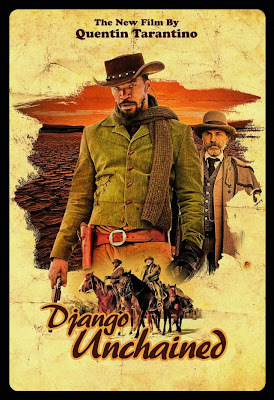‘The Imitation Game’ Is An Entertaining One (Movie Review)
Alan
Turing: Codes are a puzzle. A game. Just like any other game.
I am a fan of Benedict
Cumberbatch. I even like to refer to him
by his full name, Benedict Timothy Carlton Cumberbatch, because I enjoy celebrating
just how British he is. It is clear to
me that I am not alone in my appreciation for BTCC, but I do enjoy that it is
coming from not just his work on BBC’s Sherlock,
but from seeing him branch out into so many different roles. Now he stars as Alan Turing in The Imitation Game, which feels like a
role perfectly suitable for him, given the challenge of portraying this complex
persona, yet having a familiarity with portraying someone with an idiosyncratic
nature, especially when it comes to interaction with others. As for the film as a whole, it is perfectly
entertaining in the “important biopic that you probably won’t feel the need to
see more than once” kind of way, but the presence of Cumberbatch and his strong
performance may certainly defy that kind of logic.
Alan Turing (Cumberbatch)
was one of the many men (and women) responsible for deciphering the Enigma-generated
naval codes used by the Nazis during World War II, leading to an eventual
victory for the Allied forces. You see,
the Enigma machine developed secret messages for the Germans to share between
each other and Turing, a brilliant mathematician and cryptanalyst, was part of
a secret team of code-breakers working to crack the machine’s code. Spoilers for history, but he had ambitious
ideas for machines (later to be known as computers) that could do a lot of
thinking in only a few moments, which led to the development of one that would
help the Allies in tremendous ways.
Okay, so enough of
spoiling what should be some basic knowledge about the film, the meat of this
story is about how Alan Turing learns to interact with others, while at the
same time having a film that explores who this man is and why it is a terrible
shame that he would not go on to be celebrated for the massive triumphs he was
involved in. It is funny, I actually do
feel like I keep spoiling what The
Imitation Game ends up being about, but really, this is a film that is less
about the results and more about the portrayal of a character and what he went
through with himself and those around him.
Scripted by Graham
Moore, who adapted the novel, Alan
Turing: The Enigma by Andrew Hodges, the film accomplishes a few things
that were quite impressive. The first is
obviously what Benedict Cumberbatch brings to the part of Turing. Apparently, whether it is the rather
bullheaded swagger mixed with intelligence that makes for a compelling Sherlock
Holmes or if it is a much sweeter, yet still bullheaded and quirky role like
Alan Turing, Cumberbatch has plenty of charisma to make characters very fun to
watch. There are some large dramatic
turns for this character as well, but The
Imitation Game gets a lot out of
having an actor that can effectively make a role like this work, without being
one who alienates the audience watching him.
Another big
accomplishment is how The Imitation Game
does not feel like a stuffy period war drama.
It easily could have, which led to some initial apprehension on my part,
before finally seeing what the commotion was about. Similar to something like The King’s Speech, The Imitation Game certainly fits the bill as a drama, overall, but
is far too entertaining to be simply stated as nothing but that. Cumberbatch’s interactions with his
supporting cast certainly make sure of keeping this film in a light state of
being for a large portion of the runtime.
Matthew Goode, Mark Strong, and Charles Dance are chief proponents in
the keeping this film from seeming like a chore. All three of these actors, along with other
members of the cast, get moments to basically spar with Cumberbatch, as their familiar
character-types clash with his personality.
The key to success comes from how talented someone like Mark Strong is
at making himself work as a fun counter.
It is not all fun and
games of course. The film tries to
convey a sense of stakes, with director Morten Tyldum (check out his acclaimed
foreign thriller, Headhunters) adding
various depictions of the war taking place and mining plenty of tension out of
whether or not a large ticking box can work.
There is also the nature of Alan Turing’s sexuality. This may or may not be the best time to bring
up Keira Knightley’s Joan Clarke character, but she matters in this film for
not only being one of the code-breakers involved with Turing’s team, but due to
the way she comes to understand Alan and the relationship they form. With that in mind, while the cinematic
interpretation of Enigma being decoded and the relationship between Turing and
Clarke (along with the others) is done well enough, it does feel like the film
tries to clobber us with the film’s message concerning the other major factor
in his life – how Alan was treated, based on his sexuality.
I did not find The Imitation Game to be treating this
aspect of the story too delicately or without much care, it just feels like a
large factor in this film was rushed in more for the sake of forcefully turning
this into an even more ‘important film’ rather than being allowed to breathe
and really explore the later years of Turing’s life. At the same time, I certainly did not need The Imitation Game to turn into a huge
bummer of a film either. It is a tricky
line to walk and the film is very well-acted and confidently made as far as the
production goes, it just seems like it comes short of really transcending into
even greater territory.
Director Morten Tyldum
has stated The Imitation Game is a
film about hope. I can see that. It is also a film about unlikely heroes and
how one treats people that are different.
These are things that I have seen plenty of times in other films that
strive to be award contenders. The Imitation Game is a good film, no
doubt, and I have done my best to address the film in that regard and not what
could happen to it come award season.
That in mind, there are a lot of strong elements here, Benedict Cumberbatch
being chief among them. I liked it most
for being an entertaining film, which I was quite pleased by, given the subject
matter.
Alan
Turing: Sometimes it is the people no
one imagines anything of who do the things that no one can imagine.












Comments
Post a Comment